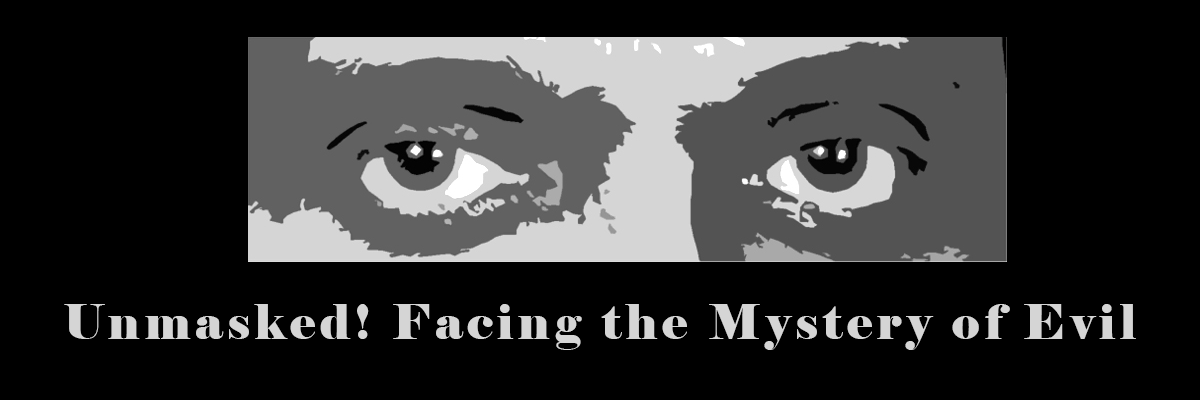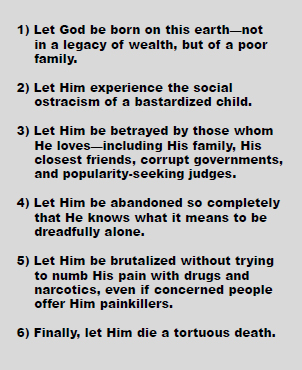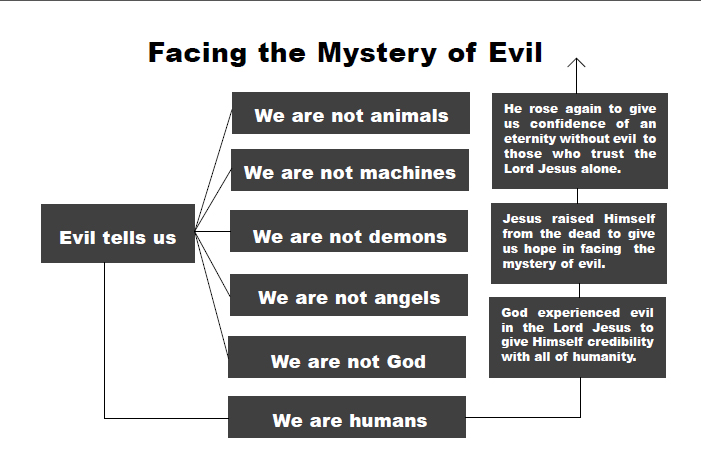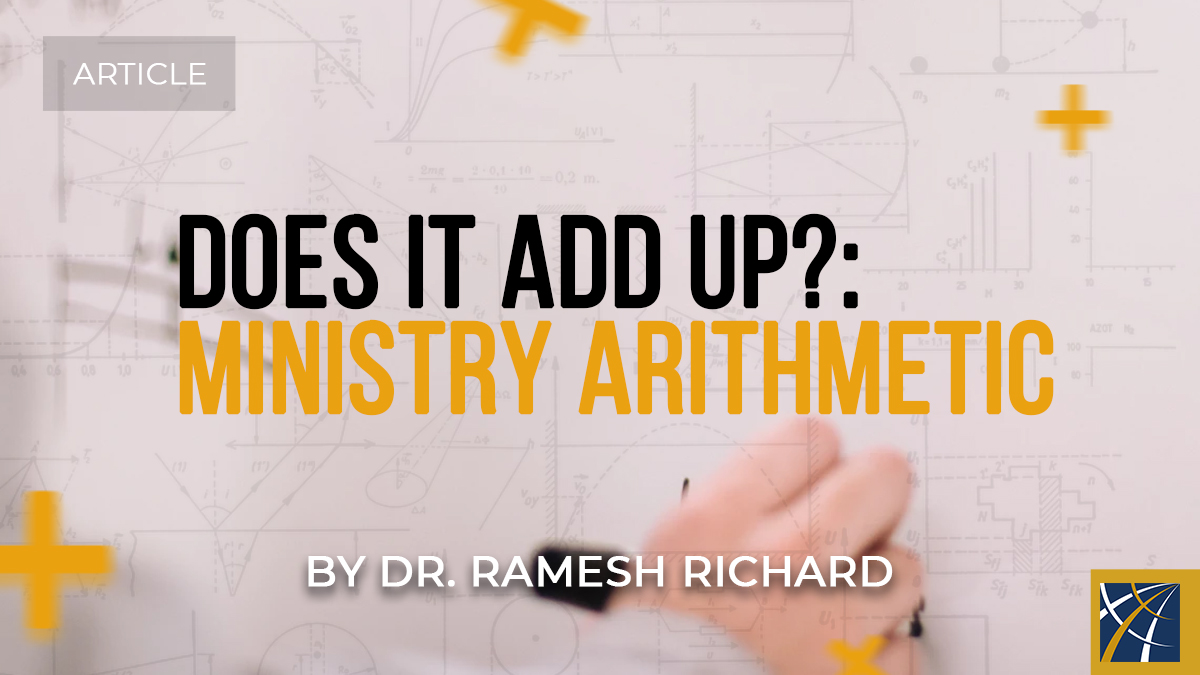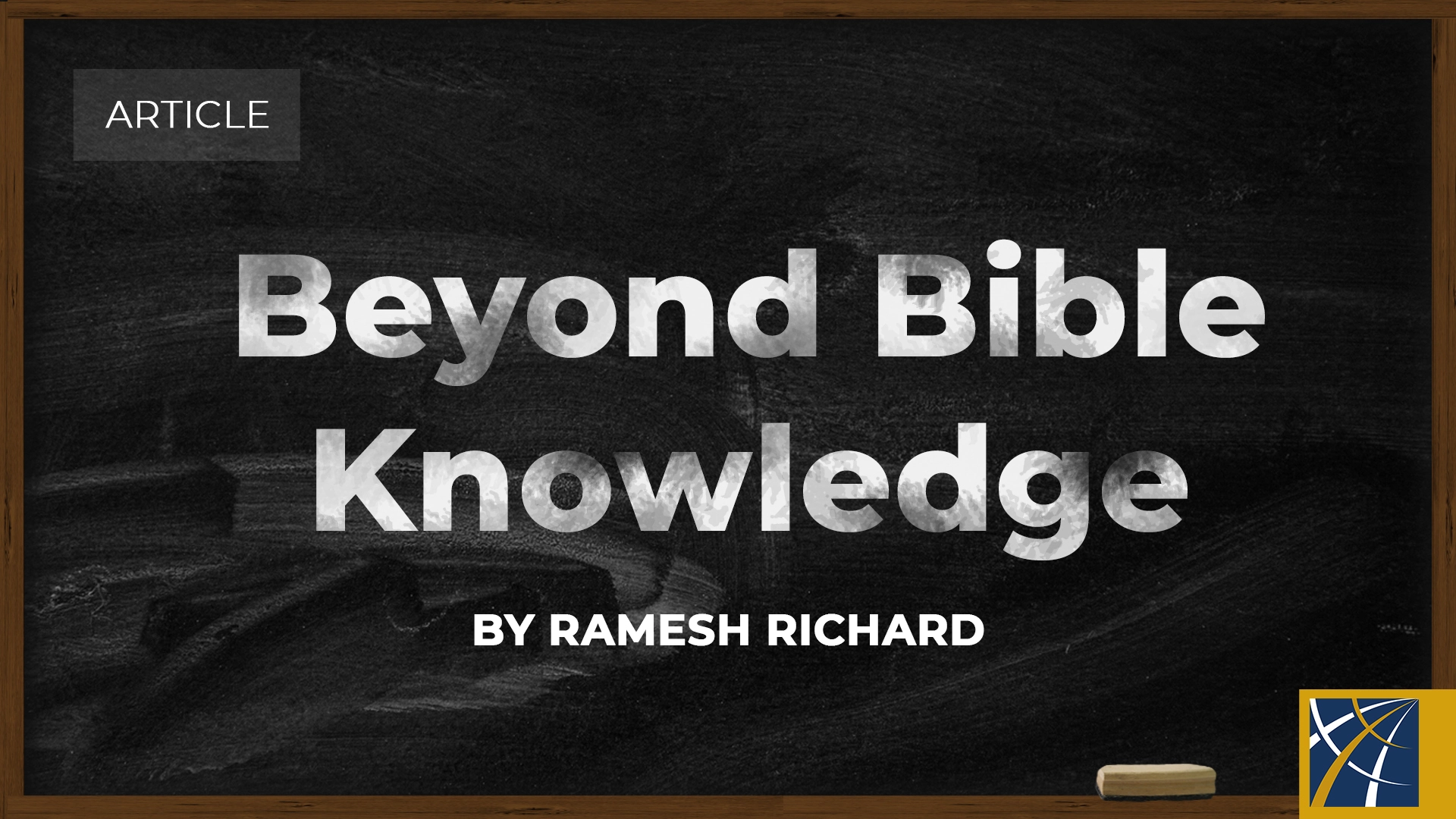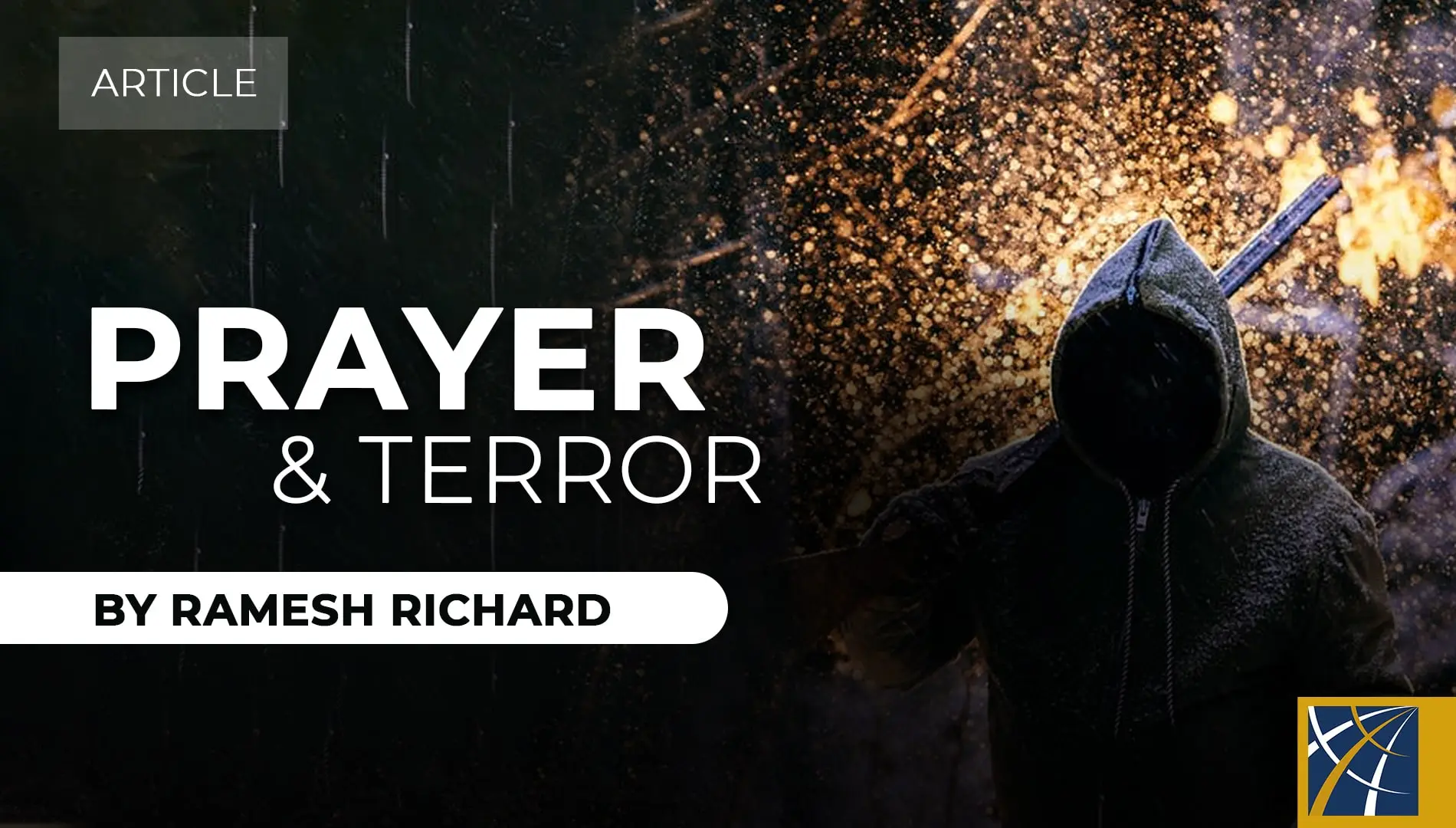by Ramesh Richard
A juvenile story of “unmasking” comes from the South Pacific. The local city zoo had run short of gorillas. They hired a young man to wear a gorilla uniform and sit in the cage. He decided to add some fun to this rather uninteresting job. In order to gain some attention, the young man asked for a blackboard and white chalk. He wrote out “2 x 2 = 4.” That stopped a few people. He went back to the board and wrote “4 x 4 = 16.” Now everybody was amused. Word got around about this amazing human-like gorilla, the long-awaited link in evolution. That Saturday, a huge crowd gathered in front of the gorilla’s cage. People with families and journalists with cameras climbed over each other. In good stride the gorilla walked up to his blackboard and wrote 16 x 16 … do you know what the answer is? 256! (I learned the answer for this story.) The people erupted in applause.
The gorilla decided to add to his repertoire of human tricks. In the next cage lived an old but quiet lion. In an arch over the cage stood a tree. The gorilla leapt like superman across the lion’s cage, making it to the other side, but heard the branch crack on the way. Nobody else heard that noise. The crowd urged him to do it again, to come back to his cage. He was afraid, but pride got the better of him. He swung back. The branch broke. He fell into the lion’s cage. Immediately the lion got up. Not knowing what to do, he was filled with terror. Each step he took backwards, the lion walked forward to him. He took a step to the left and the lion moved to his right. He took a step to his right and the lion moved to the left. As he eyed the door he looked for help. Locked in with the lion and filled with desperation he shouted, “HELP, HELP, HELP!” And the lion whispered to him, “shut up or both of us will lose our jobs.”
“Unmasked: Facing the mystery of evil” is our subject. Evil unzips the masks we wear to hide our identities. It exposes the difference between appearance and reality, and it shows how we fool ourselves by what we know, what we do, or what we have. Evil forces us to identify ourselves and it discloses our humanness. Facing evil’s mystery is an authentically human experience.
Some of you are presently facing personal evil. You may be sitting on a hospital bed waiting out your days to die. Or maybe someone you love or hates you has raped you or even attempted to murder you.
Others are facing communal evil. Riots may have broken out against minority communities. Or maybe the majority has begun an ethnic cleansing campaign to rid the world of your people.
Yet others are experiencing social evil. Whole continents are affected by the crises of epidemics. In Southern Africa, a country may lose its entire male workforce over the next 10 years because of AIDS. Once sturdy, stable economies in South America are collapsing under the weight of their debt while hoping for international monetary funds to help them out. Then there is the specter of war. Recently, a million men were staring at each other across national borders, not knowing if they were going to fight a traditional or nuclear war.
There is also natural evil: volcanoes, tornadoes, earthquakes, and other apocalyptic weather. The same region might be affected by both flood and drought within just one year!
Humans face the mystery of evil—that’s the human question, the human predicament, and the human experience. We ask hard questions as we try to solve the problem of evil. We look for hope and feel the intellectual, moral, emotional, and physical anguish of pain.
Think with me about how evil unmasks who we are—about how evil reveals our humanness:
First, evil tells us we’re not animals. You may act like a brute but humans are not mere animals. For instance, animals don’t possess the privileges of self-consciousness or historical consciousness or self-recognition or self-identity. They don’t look into a mirror or into a television camera wondering if their hair is uncombed. When a horse breaks its leg on a race course, it is put out of its misery. But if the jockey breaks his leg, doctors bring him care and healing-because the horse lacks the self-consciousness of the human.
Only human beings enjoy the gift of language and possess the ability to think reflectively, even abstractly. The distinct power of reflection drives humans to experience intellectual pain over the problem of evil. We ask questions like: “Why do good things happen to bad people?” and “Why do bad things happen to good people? “
The power of reflection helps us grasp the status of evil, which cannot boast independence—evil is abstract in concept but in reality it is always embodied and concretized. We can only have evil persons, evil things, or evil actions, but not evil on its own. Take a sheet of copy paper, a perfectly good sheet of paper, fold it in half, tear a hole in it, and then open it full-length. The paper has become tainted, bad, unusable, or evil. Now take away the borders of that torn piece of paper, and you have … nothing. Philosophers use this famous illustration to lay bare the impossibility of evil’s existence without the good. If you take that hole out, you have a completely good sheet of paper. Evil can only exist in the context of good-not by itself.
In fact, evil is not a thing in itself. So when we say, “God created all things,” it does not imply that God created evil because evil is not a thing in itself. Your power to reflect confirms that you are not a mere brute.
Second, evil discloses that we’re not machines. Machines are different from human beings, though sometimes you may feel like you’re like a replaceable component in an organizational machine, or even worse—a cog in the cosmic machine. When matters are mundane, when there’s nothing creative about life, you may feel like an automaton. Yet you are much better and matter much more than engines,
machines, and computers.
“How can we be better than machines?” considering the sound beating that a computer program, IBM’s Deep Blue, gave to Gary Kasparov, the Russian chess genius. That’s not a hard question. Why? Machines are only as good as their last development; software only as its last version; and computers as their last program. Did you know that Deep Blue was programmed by humans? A very sophisticated human Deep Blue team programmed the super-computer. They studied all of Mr. Kasporov’s games and then programmed the machine to eventually beat him.
The contest showed that several bright human minds wielding a super-computer are together better than one gifted human without a computer. Machines can only perform the same play over and over again under the same conditions. When a machine is set up to execute the same play, that’s what it will and must do. A machine can only choose between options; it CANNOT choose against an option like we can. Even the most advanced artificially intelligent machine can choose against a bad option if it’s programmed to choose a good option, but it cannot choose against a good option if it’s programmed to choose that option.
You, however, can choose evil options at will, desire, and temptation—that’s the power of human choice. In our human choice, we locate the origins of earthly evil. When God created human beings, He didn’t make us machines. He gave us the privilege to choose against Him, and we exercised that choice. It was not unlimited choice, for humans are not unlimited beings, but it was true, real choice. We decided that we will choose evil against good. When creatures began to choose against God, the ultimate good, it unleashed a comprehensive and disastrous consequence. We got landlocked in a killing field of explosive mines affecting us and everything around us. That original choice affects natural evil—we face volcanoes and earthquakes. It generates personal evil—the reason why we do evil one to another. It affects moral evil—we still regularly choose bad options over good options, knowing that we choose those options.
So when you question why God gave you the power to choose, why He didn’t make humans without choices, you are asking Him why He didn’t make you a sheer machine. But if He made you a machine, you would not have the privilege of asking the question in the first place! The gift of freedom makes evil possible; but it does not make evil necessary. Just like an airline company is not held responsible for a hijacker taking a good plane and using it for destruction, we cannot hold God responsible for making evil actions possible. The airline company is not held responsible for manufacturing an airplane, nor even for pilot error. The company is just responsible for a good original product. Your freedom is part of a wonderful original “product”—your humanness. But we’ve hijacked freedom and used it for evil. Evil unmasks who we are.
Third, evil tells us we’re not demons. Some believe in neither demons nor Satan. I heard of an English-language student learning about the forms of government. He noted that a theocracy is ruled by God; an aristocracy is ruled by aristocrats; a plutocracy is ruled by wealth; and a democracy is ruled by demons! Your husband may act like a demon but he’s not a demon. He can be possessed by a demon—a demoniac. We even know individuals who worship demons but people are not demons. Demons have no moral capacity to serve—they don’t possess the ability or inclination to do good. They don’t have the capacity to show moral sympathy, experience empathy, and serve compassionately in anguish over pain. Demons cheer when evil happens. I once saw a woman falling on the street. Immediately three or four people rushed to help her up. However, in the spiritual realm the demons stood by, cheered, and clapped hands because the lady fell.
Demonic attempts to dismiss or downgrade the problem of evil include attempts to deny the reality of evil. Satan wants you to think that the fault does not lie with reality; that the problem of evil is really with your mind—however, weeping at the funeral of a prematurely dead loved one is reality, and not simply in your mind. The demons also want you to deny that evil is universal. You may be aware of sophisticated, philosophical systems, sometimes called post-modernism or post-colonialism, which hold that all truth is created by, confined by, and construed by language interacting with local historical and cultural realities. Now, those claims reek of a universal affirmation—something that “pomos” and “pocos” decry. 100,000 people dead in an earthquake or another 100,000 people dead in a flood are not locally interpreted realities. The whole world knows that those evils are indeed true anywhere and anytime—everywhere and all the time. The problem of evil provides for the possibility that an event can affect all people as metanarratives—everywhere, regardless of space and time.
Actually, Satan tries to get you to deny that there is a God, on the basis of the existence of evil. That argument, however, does not serve its proponents well. I was flying with an Hungarian businessman, a self-proclaimed atheist, who asserted his belief that there is no god because of all the evil in the world. I asked, “What do you mean by evil?” He replied, “Don’t you think catching babies at the end of bayonets is evil? ” I responded, “Most definitely, yes. I think it that is horrific evil, but why do you call it evil?” As he was groping for an answer, I pressed him with the moral argument for God’s existence. “For you to call something evil, sir, is to assume a standard, an ultimate standard of morality and justice and good; and only if you assume an ultimate standard of good, can you call something evil. If you don’t assume an ultimate standard of good, which flows from God’s ultimately good nature, you don’t have a sound case to make evil’s presence counter the existence of God.” He understood, looked at me, and remarked: “Apparently I’ve assumed that ultimate standard.” Unless you have an ultimate standard of good, you don’t have unqualified evil.
Fourth, evil also tells humans that we are not angels. Your wife may act like an angel on occasion, but she is not an angel. A rather large gap separates angels from humans. Angels live in their heaven where there are no tears, no death, and no anxiety, while you live on the earth where you face the mystery of evil. Angels don’t feel physical pain. We do. We mourn, we groan, we cry, and we die. The biggest difference between angels and humans in terms of evil, however, is that we hold the power to err—to do wrong, to sin, and even to destroy. Did you notice that the most “advanced” of all centuries, the 20th century, also turned out to be the bloodiest? The 21st century has begun but it’s not very promising that it will eradicate evil. Why? Because the whole world and all of history is made up of people like you and me who can do wrong. Nobody taught you to do wrong. There’s a nature inside you, which differentiates you from angels. Evil exposes human sinfulness. It asks you to identify yourself as one who can, does, and has done wrong.
Finally, in exposing our humanness, evil tells us that we are not God.
A judge once dismissed a man’s appeal to change his name to “God.” Instead, he changed it to “I am Who I am,” with “I am” as his first name, and “Who I am” as his last name! Some people think such grandiose things about themselves, and expect others to worship them.
Yet we are certain that humans are not God. To many, He seems to be sitting in His heaven oblivious to the human situation. He doesn’t appear to care about us. He seems impotent and therefore unable; immoral and therefore unconcerned; ignorant and therefore vague in addressing the mystery of evil. He is distinct from us and therefore distant.
For God to resolve the human predicament, He’d have to become one of us and somehow provide meaning in the middle of chaos. If God were to become man, live among us, experience evil, and show us the way to a permanent solution, perhaps we could start to make sense in the face of evil’s mystery. Yet that seems impossible.
This is where I have some extraordinary news for you. Evil not only unmasks who we are. Evil unmasks who God is.
In this regard, may I point you to the Lord Jesus Christ as the God whom evil unmasks? I direct you to Him for your personal consideration and embrace. He not only claimed to be God, but He went through the full range of human experience as man. Unlike an animal, Jesus faced and dealt with intellectual pain. When His disciples pressed Him to answer why a particular man suffered, He pointed not to the man’s wrongs or his parents’ sins, but viewed the pain as resulting in the glory of God. Unlike a machine, He was confronted with and chose from moral options. He was tempted and tested at every point of our human weakness, but lived a perfect life by the public confession of His allies and His adversaries. He lived a sinless life. Unlike a demon, He experienced and tackled emotional anguish. At the tomb of a beloved friend, He snorted in anger over death’s intrusion into the human situation. God did not create human beings to die; yet humans chose against God’s desire, thus ending up in physical death and eternal separation from God. Jesus wept in sorrow when His dear friend died … but then He raised Him from the dead. Unlike an angel, He endured and suffered physical pain. Brutalized on a cross, He died in the most atrocious form of capital punishment then known to man. Without protest He underwent tremendous physical pain.
For God to live the ordinary human life is enough of an excruciating limitation, a shocking condescension, and a painful humiliation. But that God also chose to familiarize Himself with human pain magnifies the extremity of His suffering. One painful incident would have been enough to comprehensively affect the God-Man adversely. Yet Jesus endured all of this to solve the credibility problem for God from the perspective of evil’s presence once and for all. He was not some kind of abstract, generic, monotheistic, distant God against whom you can levy charges of irrelevance, imperfection, ignorance, and impotence. Had God not come down to be one of us in Jesus, He would have been subject to your complaints, charges, and criticisms. Yet to counter your charges, disarm your criticism, and address your complaints, He experienced the humanness of pain and the pain of humanness. Thereby God established His credibility, reliability, and trustworthiness in the Lord Jesus Christ. Nothing is impossible with God.
The issues, however, go further and deeper for us. Jesus not only brought credibility to God in the face of evil, He gained the ultimate human victory to provide the guarantee of a permanent death-free, tear-free, pain-free environment for humanity. How did Jesus do that? He raised Himself from the dead in the only verifiable, self-resurrection in all history, and He offers His life as a free gift for those who receive Him in faith.
In experiencing pain, Jesus gained credibility with us. Because He raised Himself from the dead, we can place our full confidence in Him. He experienced extreme pain so that you and I will never accuse God of being unconcerned or irrelevant. He won an unequaled victory over death so that you and I will never have to be resigned to this life alone in all its suffering and limitations. Evil unmasks who we are as humans. But evil also unmasks who God is by pointing us to the Lord Jesus.
Imagine a global earth summit, not to discuss sustainable development or environmental protection or the AIDS crisis, but one called to discuss the problem of evil in all its awful mystery. Presidents and prime ministers, moral and religious leaders, philosophers and economists all attired in their beautiful African robes, Indian saris, and pinstriped suits meet in closed-door meetings, make speeches, and finally present a global declaration on the problem of evil.
The chairman of the summit begins his final pronouncements on the problem of evil on live television, watched by billions of people. Since the subject is weighty and his declaration sober, his throat runs dry. He asks for water, takes a gulp, and climaxes with a succinct summary of the problem of God and evil. He mixes soft voice with hardened heart to ask, “Why does God have the privilege of judging humanity while He’s sitting in His heaven? He’s irrelevant!
He’s impotent! He’s imperfect! He’s ignorant of everything that is happening here on this distressed and depressed earth! How could God ever judge us if He does not know what it means to be born in a third-class city where people have no place to lay their heads? What does God know of racial and ethnic prejudice? What does God know of being abandoned and alone? What does God know of being tortured and tormented to death?
Just at that moment, the waiter who replaced the chairman’s pure, microbe-free, bottled water, whispered into the speaker’s ear, “Sir, I’ve got something to tell you.” Immediately the cameras cut away to shots of the crowd, not allowing the waiter to show off on global TV. He leaned to the chairman and said, “There is a God who does know what it means to experience evil in the precise ways you have just stated.”
Shaken by the waiter’s impudence, the chairman’s trembling hand accidentally knocked his open bottle off the table. With quivering voice, he continued to read his proclamation, “If God really wanted to sentence humanity to evil, He has to go through the sentence of evil Himself. Here are the primary conditions our globally representative committee has put together, the criteria that God must meet to be a credible judge of humanity in the eyes of the human race:
In this way He would have experienced the problem of evil as a human all the way from His birth to death. Then, and only then, will He gain the right to judge humanity.
The janitor who had arrived to clean up the water spill couldn’t stand it any longer. He jumped out from under the table, mop in hand, and bellowed: “Mr. Chairman, there is a God who has met and exceeded all the criteria of your sentence already. You may want to consider Him, Your Excellency. His name is Jesus.”
Aghast at this unplanned, public declaration the media quickly moved into news, sports, and movies. But the whole world had heard that God had met the sentence that humanity had placed on Him. God experienced evil in the Lord Jesus to give Himself credibility with us; and the Lord Jesus raised Himself from the dead to give us hope in facing the dastardly mystery of evil. You can have hope right now, in the present, as you face the full spectrum of intellectual, moral, emotional, and physical pain. But you can also have hope forever when you embrace the Lord Jesus as your only God and Savior. You can permanently live without evil in eternity.
Evil unmasks who we are. It shows us that we are humans. Evil unmasks who God is for you, for me, for the whole world. The Lord Jesus experienced humanness. He was born, He bled, and He breathed His last so that you and I could have life. He rose again in order to give us the confidence of an eternity without evil. He welcomes you to embrace Him as your only God and Savior. If you want to know how to embrace the God whom evil has exposed as humanity’s only Savior, please visit and register on our website at www.liferocks.org. We will be glad to dialogue and lead you into life’s ultimate decision concerning the mystery of evil.
* This is the transcript of Ramesh Richard’s 2003 New Year’s Day Telecast on prime-time, secular television. As you read and are challenged by this article, we would like to invite you to invest in RREACH as your outlet for large, effective, and immediate impact worldwide. Will you pray that thousands of people with non-Christian backgrounds register on our website, www.liferocks.org for year-long follow-up? Watch the video click here and then share with an international neighbor whom God has placed in your life.

